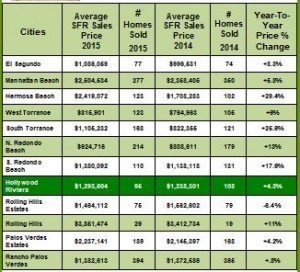Sometimes clients and salespeople think the closing is going to be the easiest part of the deal, but these days, entering into a contract is only the beginning. According to the National Association of Realtors recent Realtors Confidence Index survey, between 10% and 14% of pending transactions do not close. Another 20% are delayed but eventually close.
Setting realistic client expectations is essential to do up front at the beginning of the transaction or even while you are listing the clients home or out showing property. Going through the list of hurdles that often delay or prevent a closing – they fall into three categories: Loans & Appraisals, Title, and Home Inspections. It’s no surprise that these are also the categories in the purchase contract that include “contingency periods.” One has to be realistic up front with their clients as to what these contingency periods mean and how the contingencies are actually removed and what happens when those contingencies are removed.
Loan and Appraisal Contingency – it is more critical than ever for the borrower to make sure they are financially qualified for the purchase. It is important for the buyer to be aware that their income and assets will be and need to be verified by the loan broker and by the selling party. Knowing where the down payment is coming from is crucial and will be highly scrutinized by the underwriter, thus needs to be scrutinized by the selling party/listing agent as well or be prepared for a surprise at the end when you’re supposed to close and can’t. Hopefully, you’ll just experience a delay and not a cancellation. Appraisal – be prepared as the listing agent to prequalify your appraiser before they show up. Make sure they know the area your listing is located in, especially if that area is a micro-area that has its own nuances that only a local would understand. This can kill a deal immediately if the appraisal does not come in at sales price. Make sure they buyer is aware of any issues that might come up with an appraisal if you are worried it might not come in.
Title Issues – When we take a listing we open a title search to check for possible liens that the seller may not be aware of. Those need to be cleared prior to closing and delay a closing. A preliminary title search can reveal a whole array of problems from unpaid taxes to land-use restrictions. Short sales and REO’s (Real Estate Owned – Bank Owned) sales are particularly prone to title problems.
Home Inspections – It’s not just about getting an inspection and finding out what is wrong with a house (if anything) that causes a problem or delay. It’s the negotiations that happen after that inspection between the buyer and seller regarding which party will pay for repairs and or who will get estimates that often delays a transaction. A good way to avoid “surprises” to a seller is to go through the property with the seller prior to the listing and go over what does and doesn’t work. Careful visual inspection by a listing agent can often reveal what ‘may’ come up during an inspection and keep the seller aware that this is going to come up during the transaction. Making a seller aware of what happens during the inspection helps them understand the process and being ready for the worst case scenario is better than being surprised by the whole process. Sellers don’t necessarily have to fix problems, but knowing what they might have to spend might help them price the house.
The bottomline – allowing for more time during the escrow period – 45-60 days vs 30 days – may keep the transaction closing on time in the first place.


